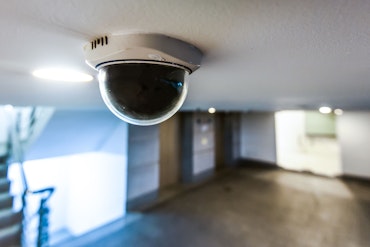Secret aged care audit sparks concern
Nurses “tired of inaction” on elder neglect are the driving force behind a secret state-wide audit of aged care facilities across Queensland over the weekend.

A secret audit of aged care in Queensland found that some facilities “routinely leave residents without a registered nurse overnight” (Source: Shutterstock)
Led by nurses, relatives and community volunteers, the “civilian army” inspected 70 aged care facilities in 30 federal Queensland electorates on Sunday, 13 May, and revealed what Queensland Nursing and Midwives’ Union (QNMU) is calling damning results.
The audit notes “disturbing and dangerous” aged care practices that the QNMU say are as a result of chronic understaffing, with QNMU Secretary Beth Mohle saying that 79 percent of aged care staff surveyed say their facilities were dangerously understaffed, with more than 82 percent of staff reporting residents calling for help had been forced to wait.
Ms Mohle says it also showed that more than two thirds of staff surveyed related this chronic understaffing to their inability to properly clean residents, with many adding that it had become common practice in some facilities to wash residents just once a week.
Currently there are no laws that state even a single registered nurse must be on a site at an aged care facility at any time, with the audit finding that some facilities “routinely leave residents without a registered nurse overnight, others use virtual nurses or nurses located at sister facilities hundreds of kilometres away, to provide potentially life-saving medical advice over the phone”.
“The QNMU’s secret state-wide audit has revealed aged care residents throughout the state are regularly left without a registered nurse on staff overnight,” Ms Mohle says.
“We know that aged care facilities are dangerously understaffed throughout Queensland and Australia, and that elderly residents are suffering as a result.”
Ms Mohle says in most towns, registered nurses are being left to look after up to 200 residents at a time, adding that while nurses and other staff are doing their best, they simply can’t meet the demand for care under these circumstances.
“Our audit of Queensland aged care facilities has revealed almost 80 percent of staff caring for elderly residents in Queensland are personal carers,” she says.
“Our findings reveal unqualified staff are being allowed to administer dangerous and potentially life-threatening medications, that residents are falling and not being checked, that residents are laying with untreated injuries such as broken hips for days at a time and regularly experiencing malnutrition and dehydration.”
The QNMU says this chronic understaffing and elder neglect is “occuring in so many facilities”.
“Elderly mothers, fathers, retired teachers, firemen, farmers and many others are going unfed, unmedicated, unwashed and left to lie in their own waste for hours at a time,” Ms Mohle says.
“[And] we won’t stand for it.
“We know that aged care facilities in almost every community are dangerously and chronically understaffed [and] we know for a fact that Australia’s elderly are suffering unnecessary pain… and premature death due to dangerously low staff numbers.
“We also know there is a truly toxic culture in Australian aged care where providers who fail to safely staff their facilities blame their employees for the tragic incidents that occur.
“The Federal Government are aware of the dangers and the culture of fear facing the elderly and those who care for them, yet politicians fail to act.”

Despite saying politicians are failing to act, Ms Mohle points to Federal Minister for Aged Care Ken Wyatt’s announcement of another agency to report elder neglect, after it had occurred.
“Minister Wyatt’s recent announcement of another agency to report on elder neglect is akin to parking an ambulance at the bottom of a cliff – rather than erecting a fence at the top,” she says.
Minister Wyatt says the Turnbull Government has a strong record of action to maintain and improve the delivery of safe, quality aged care.
“The provision of adequate, skilled staffing and human resources are among the key standards legislated in the Aged Care Act,” he says.
“These standards are rigorously enforced, [and] since last July, six residential aged care providers have lost licences to operate aged care homes and the Turnbull Government has closed four homes for not meeting aged care standards… several others are currently under sanction, including having to increase their staffing.
“We have also made unannounced re-accreditation audits of aged care homes law in March 2018.”
Minister Wyatt adds that the enforcement of care standards, including adequate staffing, will be further intensified through the new Aged Care Quality and Safety Commission which is set to be established from 1 January 2019, as a “tough cop on the beat” to ensure older Australians receive the best possible care.
“It is imperative that everyone associated with aged care – including nurses and carers – reports concerning, unacceptable or illegal practises immediately to the appropriate authorities – the Aged Care Complaints Commissioner, the Australian Aged Care Quality Agency or the police…these notifications can be done anonymously,” Minister Wyatt explains.
“Ensuring Australian aged care has a strong supply and adequate provision of appropriately trained, skilled and resourced staff is a top Government priority as demand is growing rapidly, with projections Australia will require almost one million aged care staff by 2050, up from the 360,000 currently employed.”
Despite acknowledging the importance of a strong aged care workforce, and noting the new Taskforce and Industry Reference Committee, Minister Wyatt reiterates his point that “there is no clear evidence or research that suggests implementing nurse or staff to patient ratios will actually increase the quality of care.”











![The new Aged Care Act exposure draft is slated for release in December of 2023, but advocates hope to see it rolled out on January 1, 2024. [Source: Shutterstock]](https://agedcareguide-assets.imgix.net/news/articles/wp/agedcareact__0811.jpg?fm=pjpg&w=520&format=auto&q=65)












Comments